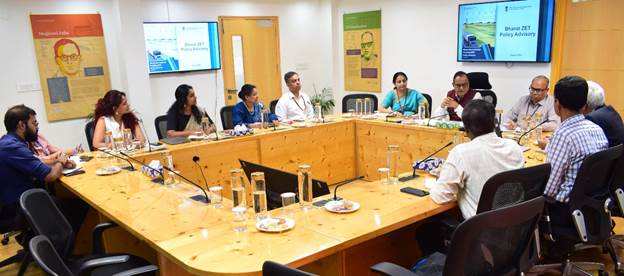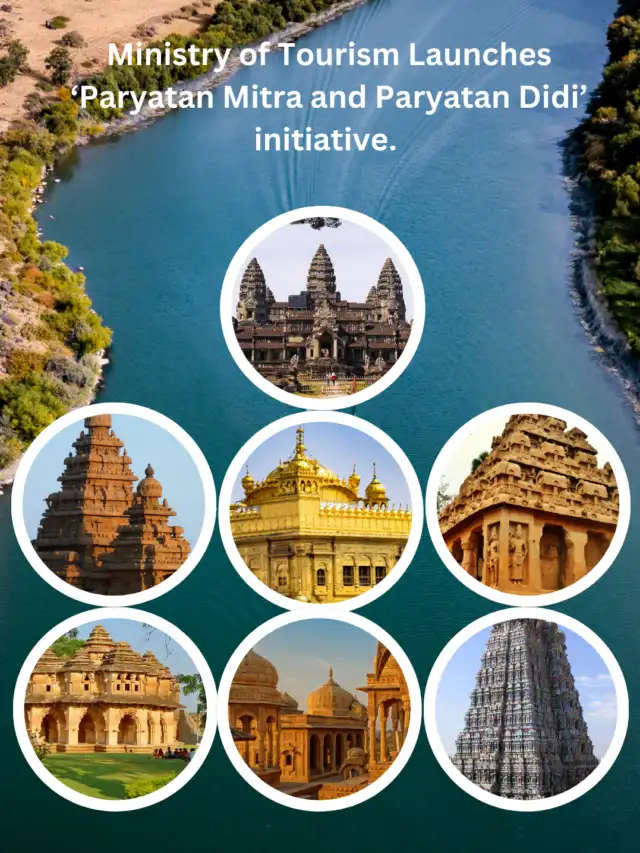
Auto Amazon Links: Could not resolve the given unit type, . Please be sure to update the auto-insert definition if you have deleted the unit.
Launch of the Bharat Zero Emission Trucking (ZET) Policy Advisory
On August 21, 2024, Prof. Ajay Kumar Sood, the Principal Scientific Adviser (PSA) to the Government of India, officially launched the “Bharat Zero Emission Trucking (ZET) Policy Advisory” at Vigyan Bhawan Annexe, New Delhi. The event saw participation from key figures in the government, industry, and academia, including Dr. Parvinder Maini, Scientific Secretary, Office of PSA; Sh. Hanif Qureshi, Additional Secretary (Auto), Ministry of Heavy Industries; Sh. Sudhendu Sinha, Adviser (Infrastructure Connectivity & E-Mobility), NITI Aayog; and several other prominent experts from IIT Madras and the World Resources Institute (WRI).
Importance of Zero Emission Trucks (ZET)
In his opening address, Prof. Sood highlighted the critical role that Zero Emission Trucks (ZETs) will play in achieving India’s decarbonization and energy security goals. He stressed that the adoption of ZETs requires a combination of technical expertise and systematic policy interventions to create a supportive techno-socio-economic ecosystem in India.
Overview of the Bharat ZET Policy Advisory Document
Prof. Karthick Athmanathan, PSA Fellow and Professor of Practice at IIT Madras, provided the context for the Bharat ZET Policy Advisory document. Ms. Sharvari Patki, Program Head of Electric Mobility at WRI, presented an overview of the document, detailing the approach and methodology used to formulate the policy interventions.
Key Speeches and Insights
Sh. Hanif Qureshi, Additional Secretary (Auto), Ministry of Heavy Industries, and Sh. Sudhendu Sinha, Adviser (Infrastructure Connectivity & E-Mobility), NITI Aayog, also addressed the gathering. They emphasized the urgent need for truck electrification and discussed strategies for achieving full transition to ZETs by 2050, a milestone crucial for India’s broader objective of achieving Net Zero emissions by 2070.
Structure and Content of the Bharat ZET Policy Advisory
The Bharat ZET Policy Advisory is designed as a dynamic document, proposing 30 policy interventions aimed at accelerating the adoption of ZETs in India. These interventions are categorized into five key areas:
- Incentives: Proposals for financial and non-financial incentives to encourage ZET adoption.
- Regulations: Guidelines and regulatory frameworks to support the transition to ZETs.
- Infrastructure: Development of necessary infrastructure to facilitate ZET operations.
- Business and Financing: Strategies to attract investment and create sustainable business models for ZETs.
- Stakeholder-Centric Initiatives: Measures to engage and involve all relevant stakeholders in the ZET transition.
Each policy intervention is supported by detailed guidelines, including the identification of a nodal agency responsible for implementation, a list of key stakeholders, its expected impact on the sector, and the methodology of policy formulation. These recommendations are set to be refined through extensive consultations with stakeholders, including detailed cost-benefit and impact analyses by the concerned ministries, departments, and institutions.
Development and Oversight of the Advisory Document
The creation of the Bharat ZET Policy Advisory was overseen by a Policy Advisory Panel (PAP) constituted by the Office of the PSA. The Project Management Unit established at the Centre of Excellence for Zero Emission Trucking (CoEZET), IIT Madras, was instrumental in drafting the document under the guidance of the PAP. The PAP is chaired by Dr. Preeti Banzal, Adviser, Office of PSA, and vice-chaired by Prof. Karthick Athmanathan. The panel comprises industry leaders, government officials, and academic experts from various organizations, including the Automotive Research Association of India, Ashok Leyland Ltd., Tata Motors Ltd., NTPC, and IIT Bombay, among others.
The full advisory document can be accessed for further details and guidelines.[source:PIB]
Auto Amazon Links: Could not resolve the given unit type, . Please be sure to update the auto-insert definition if you have deleted the unit.
भारत का साहसिक मिशन: 2050 तक 100% शून्य उत्सर्जन ट्रकिंग
भारत जीरो एमिशन ट्रकिंग (जेडईटी) नीति परामर्श” दस्तावेज़ का शुभारंभ
21 अगस्त, 2024 को नई दिल्ली के विज्ञान भवन एनेक्सी में भारत सरकार के प्रधान वैज्ञानिक सलाहकार (पीएसए) प्रो. अजय कुमार सूद ने “भारत जीरो एमिशन ट्रकिंग (जेडईटी) नीति परामर्श” नामक सलाहकार दस्तावेज़ का आधिकारिक रूप से शुभारंभ किया। इस महत्वपूर्ण कार्यक्रम में कई प्रमुख सरकारी अधिकारियों और विशेषज्ञों ने भाग लिया, जिनमें पीएसए कार्यालय के वैज्ञानिक सचिव डॉ. परविंदर मैनी, भारी उद्योग मंत्रालय के अपर सचिव (ऑटो) श्री हनीफ कुरैशी, नीति आयोग के सलाहकार (इंफ्रास्ट्रक्चर कनेक्टिविटी और ई-मोबिलिटी) श्री सुधेंदु सिन्हा, और आईआईटी मद्रास और वर्ल्ड रिसोर्सेज इंस्टीट्यूट (डब्ल्यूआरआई) के कई अन्य प्रमुख प्रतिनिधि शामिल थे।
जेडईटी के महत्व पर पीएसए प्रो. सूद का उद्घाटन भाषण
अपने उद्घाटन भाषण में, प्रो. अजय कुमार सूद ने जीरो एमिशन ट्रक्स (जेडईटी) के महत्व पर जोर दिया, जो भारत के डीकार्बोनाइजेशन और ऊर्जा सुरक्षा लक्ष्यों को प्राप्त करने में महत्वपूर्ण भूमिका निभाएंगे। उन्होंने इस बात पर भी प्रकाश डाला कि जेडईटी को अपनाने के लिए तकनीकी विशेषज्ञता और व्यवस्थित नीति हस्तक्षेपों की आवश्यकता है, जो भारत में एक सक्षम तकनीकी-सामाजिक-आर्थिक परितंत्र का निर्माण कर सके।
भारत जेडईटी नीति सलाहकार दस्तावेज़ का अवलोकन
आईआईटी मद्रास के पीएसए फेलो और प्रोफेसर ऑफ प्रैक्टिस प्रो. कार्तिक आत्मनाथन ने दस्तावेज़ की पृष्ठभूमि प्रस्तुत की, जबकि डब्ल्यूआरआई की कार्यक्रम प्रमुख सुश्री शारवरी पटकी ने नीति हस्तक्षेपों पर पहुंचने की कार्यप्रणाली और दृष्टिकोण पर प्रकाश डालते हुए दस्तावेज़ का संक्षिप्त अवलोकन प्रस्तुत किया।
प्रमुख वक्ताओं के विचार और भविष्य की योजना
इस अवसर पर भारी उद्योग मंत्रालय के अपर सचिव (ऑटो) श्री हनीफ कुरैशी और नीति आयोग के सलाहकार श्री सुधेंदु सिन्हा ने भी अपने विचार साझा किए। उन्होंने ट्रकों के विद्युतीकरण की अनिवार्यता पर जोर दिया और 2050 तक 100% जेडईटी बिक्री पैठ हासिल करने के लिए आगे की रणनीतियों पर चर्चा की, जो भारत के 2070 तक नेट जीरो उत्सर्जन लक्ष्य को प्राप्त करने के लिए आवश्यक है।
भारत जेडईटी नीति सलाहकार दस्तावेज़ की संरचना और मुख्य नीतिगत हस्तक्षेप
भारत जेडईटी नीति सलाहकार दस्तावेज़ को एक गतिशील दस्तावेज़ के रूप में तैयार किया गया है, जिसमें भारत में जेडईटी को अपनाने में तेजी लाने के लिए 30 नीतिगत हस्तक्षेपों का एक व्यापक सेट प्रस्तुत किया गया है। इन हस्तक्षेपों को पांच प्रमुख क्षेत्रों में वर्गीकृत किया गया है:
- प्रोत्साहन: जेडईटी को अपनाने के लिए वित्तीय और गैर-वित्तीय प्रोत्साहनों के प्रस्ताव।
- विनियमन: जेडईटी संक्रमण का समर्थन करने के लिए दिशानिर्देश और विनियामक ढांचे।
- बुनियादी ढांचा: जेडईटी संचालन की सुविधा के लिए आवश्यक बुनियादी ढांचे का विकास।
- व्यवसाय और वित्तपोषण: निवेश आकर्षित करने और जेडईटी के लिए सतत व्यवसाय मॉडल बनाने की रणनीतियां।
- हितधारक-केंद्रित पहल: जेडईटी संक्रमण में सभी संबंधित हितधारकों की भागीदारी सुनिश्चित करने के उपाय।
प्रत्येक नीतिगत हस्तक्षेप के लिए कार्यान्वयन की जिम्मेदारी नोडल एजेंसी, प्रमुख हितधारकों की सूची, क्षेत्र पर इसका संभावित प्रभाव और नीति निर्माण की कार्यप्रणाली की पहचान की गई है। इन सिफारिशों को और अधिक परिष्कृत करने के लिए संबंधित मंत्रालयों, विभागों और संस्थानों द्वारा विस्तृत लागत-लाभ और प्रभाव विश्लेषण सहित व्यापक हितधारक परामर्श की प्रक्रिया को अपनाया जाएगा।
नीति सलाहकार दस्तावेज़ का विकास और मार्गदर्शन
इस सलाहकार दस्तावेज़ का विकास पीएसए कार्यालय द्वारा गठित नीति सलाहकार पैनल (पीएपी) के मार्गदर्शन में किया गया था। दस्तावेज़ के मसौदे को तैयार करने के लिए आईआईटी मद्रास के सेंटर ऑफ एक्सीलेंस फॉर जीरो एमिशन ट्रकिंग (सीओईजेडईटी) में एक परियोजना प्रबंधन इकाई की स्थापना की गई थी। पीएपी की अध्यक्षता पीएसए कार्यालय की सलाहकार डॉ. प्रीति बंजल ने की, जबकि इसके उपाध्यक्ष पीएसए फेलो प्रो. कार्तिक आत्मनाथन थे। इस पैनल में ऑटोमोटिव रिसर्च एसोसिएशन ऑफ इंडिया, अशोक लीलैंड, टाटा मोटर्स, एनटीपीसी, आईआईटी बॉम्बे और विश्व बैंक के विशेषज्ञ शामिल थे।
इस दस्तावेज़ के माध्यम से भारत में जीरो एमिशन ट्रकिंग के लिए एक ठोस और व्यावहारिक मार्गदर्शिका प्रदान की गई है, विस्तार जानकारी हेतु लिंक पर क्लिक करके देखा जा सकता है।
स्रोत:PIB




